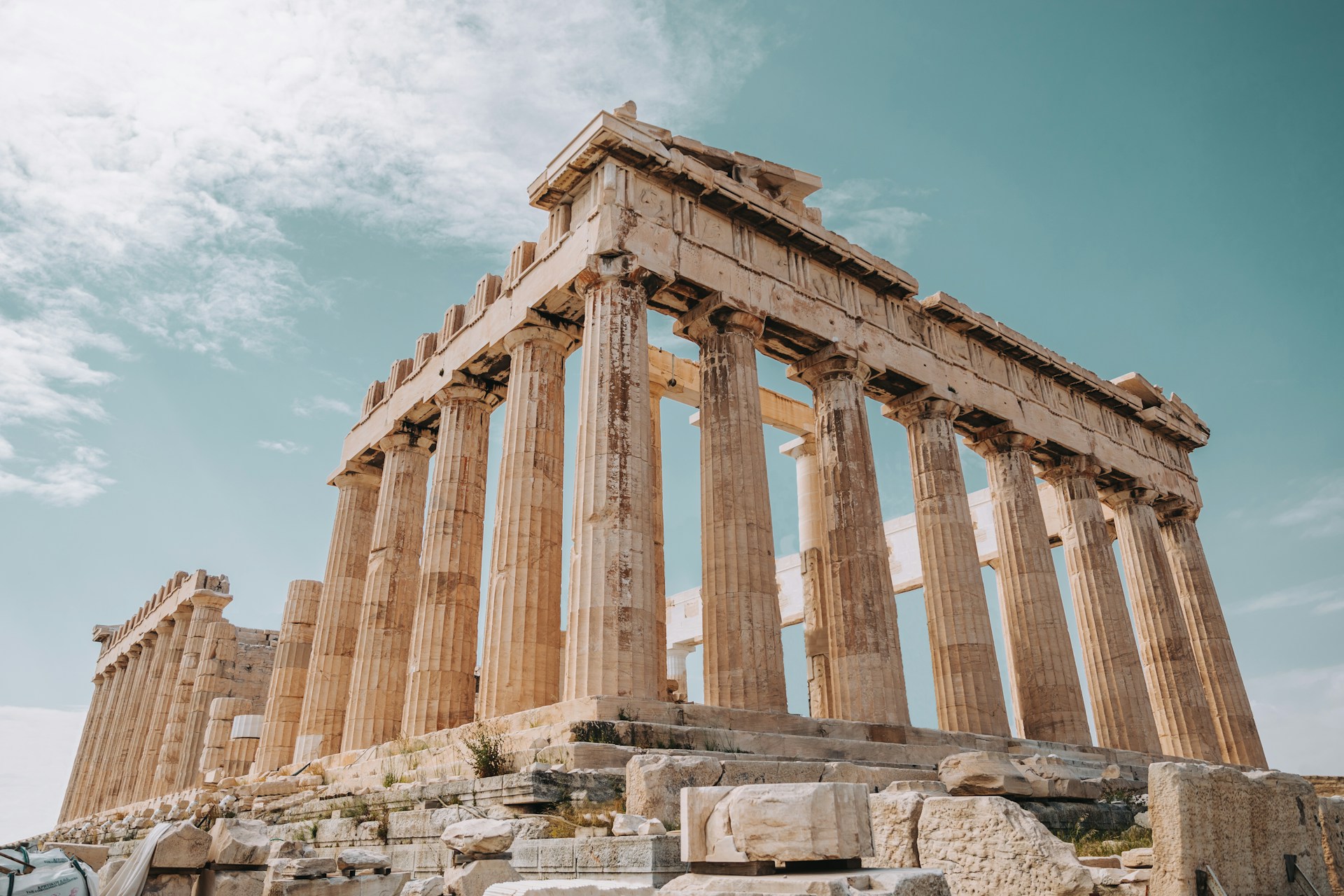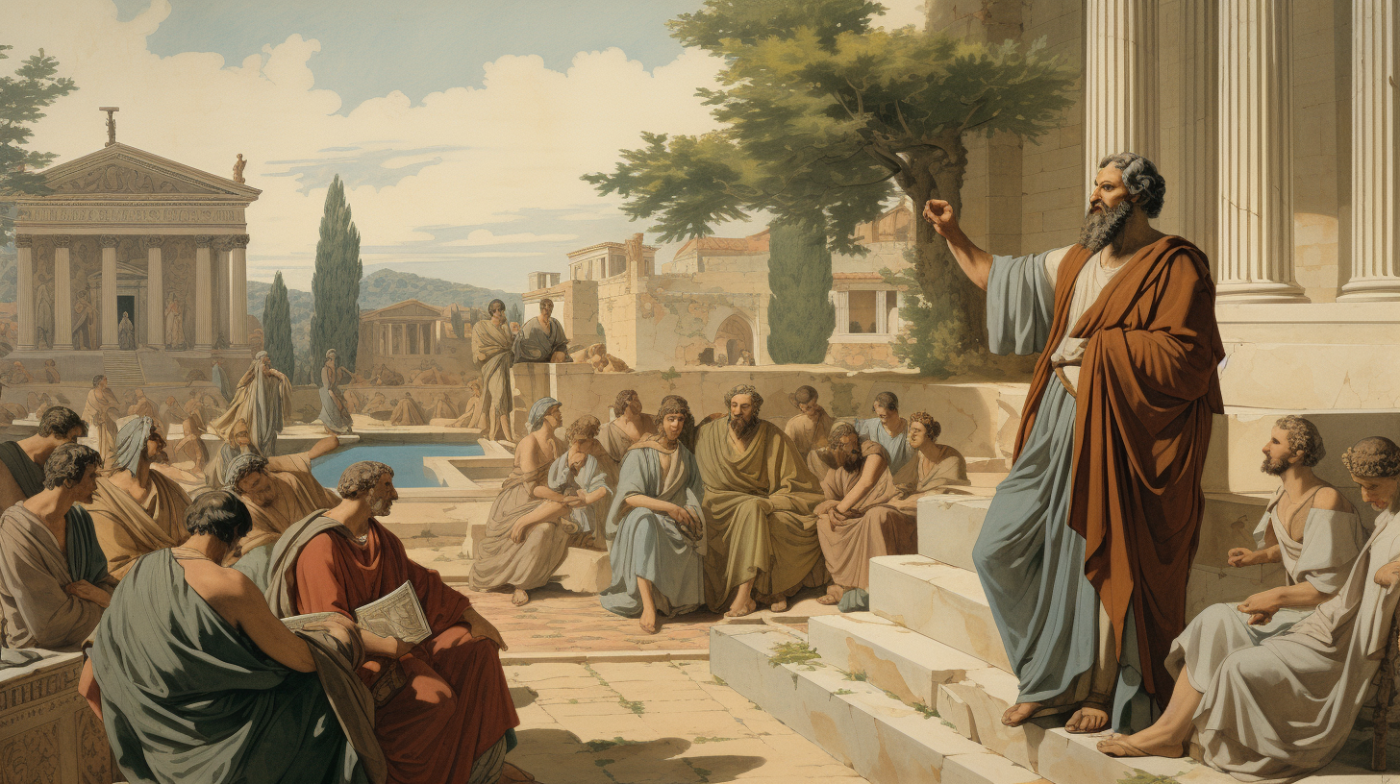By Evi Chrysoheri,
It might be surprising to someone that in Ancient Athens citizens used to adopt other members of society. Nevertheless, it’s true, but Ancient Athenians didn’t adopt someone for the same reasons modern people would do today. Nowadays, people who want to proceed with the process of adoption usually are looking to expand their family and, at the same time, help this child to grow up in the right environment. On the contrary, in antiquity, there were personal benefits from adoption and the main one was that the ‘oikos’ would be continued and not extracted.
More specifically, the word ‘oikos’ translates to family, residents, and inheritance, but here we are going to use it with the meaning of family and inheritance mostly. Moreover, the master of the ‘oikos’ was a male adult who was called ‘Kyrios’. If he was young, he had hopes that he would get married and produce legal descendants who would continue his inheritance. Now, it’s worth mentioning that a man in Ancient Athens could have children with a woman already, outside of marriage. But these children wouldn’t be recognized by society as legal heirs and they wouldn’t have any rights to their father’s legacy.

Also, women in Ancient Greece were defective legal entities, so, even if she was a legal child, her father had to marry her to someone or adopt a son who most likely would marry his stepsister. This can be shocking, but it’s a very common thing in antiquity. As a matter of fact, if the father passed away and the daughter was single, then the closest relative would marry her, so that the ‘oikos’ wouldn’t be abandoned, and simultaneously become her guardian. Another important information is that if the ‘oikos’ were extracted, then the authorities would proceed to the confiscation of assets, which neither society nor the last descendant desires. Thus, if the head of the family didn’t have a son or he was unmarried and scared he wouldn’t acquire one, the solution for this problem was the process of fostering. Additionally, the owner of the ‘oikos’ would adopt an adult man because he was ready to succeed his stepfather’s legacy. This kind of adoption was known as ‘live adoption’ because the father was alive during the application process.
There are two more ways to make an application for adoption in antiquity and they are applied after the death of ‘Kyrios’. The second one is called ‘adoption with a testament’, so in this case, every Athenian citizen could write a covenant in which they stated who they were adopting and leaving as the heir of their ‘oikos’. Most of the time, ‘Kyrios’ would adopt a closer relative who would claim the inheritance anyway, or he could adopt someone with no family connection at all, preventing the hassle. It’s interesting that in Ancient Athens people didn’t write a will to arrange the allocation of their assets like today, but only as an application for adoption. Lastly, the third way was ‘posthumous adoption’. In this case, things aren’t so clear, but it is said that if the ‘Kyrios’ hadn’t had a son and hadn’t left a testament then the narrower relative, with the confirmation of the other ones, would declare himself as the heir of the ‘oikos’. Furthermore, a difference between the process of ‘live adoption’ and the ones after the ‘Kyrios’’ death is that the successor in the first occasion didn’t have to be involved in any judicial procedures to claim the inheritance, in contrast with the other ones, where they must do an inheritance claim application. An interesting fact is that the man who was being adopted was forbidden to adopt someone else in the future even if he wanted to.
Summarizing, the difference among the past and now is clear, but the thing that should impress us is the interest of society to protect families. There are many precautions taken to ensure harmony and smooth operation of the whole, in Ancient Athens. Because the catastrophe of many ‘oikos’ can lead to economic, demographic, and many other problems.
Reference
- Αμφιλόχιος Παπαθωμάς, Ροζαλία Χατζηλάμπρου, Το σώμα των αττικών κληρονομικών λόγων οι ακέραια σωζόμενοι λόγοι, SCRIPTIO CONTINUA, Athens, 2021, p: 13-21.




